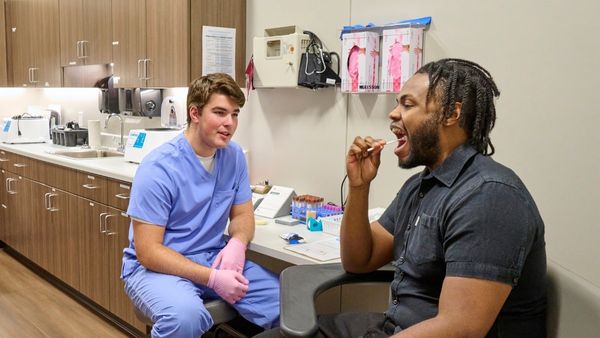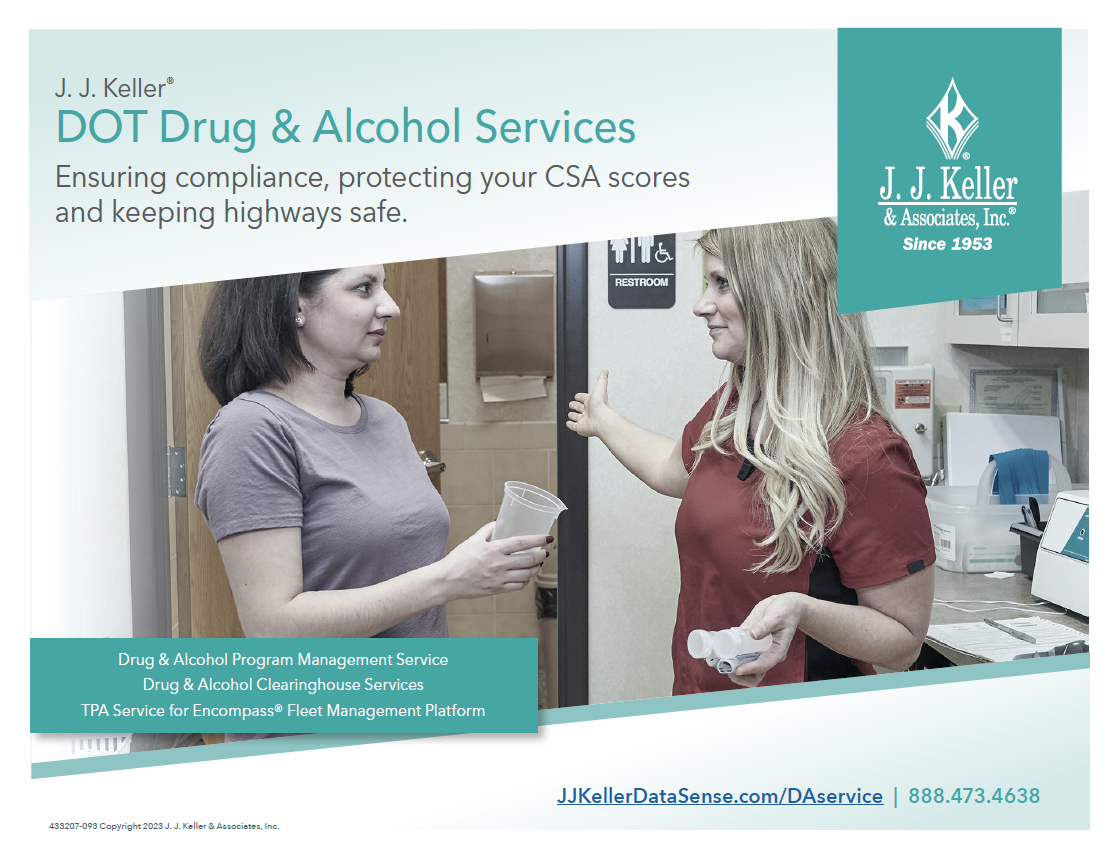Request our easy-to-read resource that explains how to best manage your DOT drug and alcohol testing program.
Are You Ready For Oral-Fluid Drug Testing?
October 16, 2023

Oral-fluid (saliva) drug testing will soon be an option for motor carriers when sending CDL drivers for DOT testing. However, before motor carriers can move forward with the new testing method, laboratories must be certified by the U.S. Department of Health and Human Services (HHS) to process the specimens.
Motor carriers should use this interim period to:
- Evaluate whether oral-fluid drug testing is a fit for their operation,
- Dialogue with service agents,
- Update their DOT drug and alcohol policy, and
- Train drivers, supervisors, and program managers on the testing method.
Use the following checklists to help prepare for the day when this alternate testing method is readily available.
Is oral-fluid drug testing a fit for your operation?
Consider the following when determining whether oral-fluid drug testing is right for your operation.
True cost of testing
It remains to be seen whether oral-fluid tests will cost more or less than urine tests. Ask the following service agents to provide a comparison of their urine and oral-fluid specimen fees:
- Medical review officer (MRO)
- Collection site
- Certified lab
- Consortium/third-party administrator (C/TPA)
Detection window
Oral-fluid drug testing:
- Detects more recent use,
- Is more advantageous for post-accident and reasonable-suspicion tests,
- Is not as suitable for detecting chronic/habitual drug use, and
- Allows for a hybrid model (urine and oral fluid) that takes advantage of both test types.
Cheating
Oral-fluid drug testing offers fewer opportunities to tamper with the specimen or otherwise cheat on the test. The collection is directly observed each time.
Privacy
When compared to urine-specimen collections, oral-fluid testing is less intrusive. This could make for less-hesitant drivers taking drug tests.
Alternate testing method
Oral-fluid testing offers an alternate testing method for recollections.
Finding the right service agents
If oral-fluid drug testing works for your company, you need to make sure your current vendors offer the service or line up new providers.
- Do your collection sites:
- Offer oral-fluid drug testing?
- Have trained collectors available?
- Provide the oral-fluid collection kits?
- Use a testing kit that is compatible with your certified lab?
- Is your HHS-certified lab certified to process oral-fluid drug tests? If yes, do they process the type of testing kit used by your collection site?
- Does your MRO verify oral-fluid drug tests?
- If your vendors offer oral-fluid drug testing, have fees have been discussed and contracts updated?
Company policy & educational materials
Motor carriers must update their DOT drug testing policy and the educational materials to reflect oral-fluid drug testing.
Items to revise include:
- Standing orders to collection sites. These orders must indicate when to use urine or oral-fluid drug testing (e.g., test types, direct observations), and whether to switch from one to the other as an alternate testing method when permitted.
- Updated drug testing procedures to include oral-fluid testing procedures.
Motor carriers must provide the revised materials to every new driver and those transferring into safety-sensitive positions.
But a common practice is to provide at least an addendum of the changes to existing drivers, so they know what policies and procedures have changed and what to expect at the collection site. It’s a good idea to get a new signed receipt from them. This practice demonstrates safety management controls.
Training employees
Everyone involved with your DOT drug and alcohol testing program should receive some sort of training on the new drug testing method.
- Program managers must know whether urine and/or oral-fluid drug testing is used by the carrier when:
- Contracting with service providers,
- Scheduling driver tests,
- Auditing drug testing records, and
- Answering driver questions.
- The designated employer representative (DER) must know:
- Which test types require urine collections or oral-fluid specimens,
- Whether an alternate testing method is required by the carrier when contacted by the collection site, and
- Specific oral-fluid scenarios that are considered refusals to test.
- Drivers must know drug testing procedures for oral-fluid, including:
- Initial collection procedures requiring an oral-cavity inspection,
- When a mouth rinse is required following an oral-cavity inspection,
- The 10-minute waiting period before beginning the specimen collection,
- Collection process and split specimen procedures,
- Dry mouth situations, and
- Refusal to test scenarios.
Key to remember
When considering an optional provision in the safety regulations, such as the oral-fluid drug test, you need to weigh the decision and then make a to-do list if implemented.

J. J. Keller goes beyond the alcohol or drug test to give you a deeper level of service and risk protection. Learn more about our Drug & Alcohol Program Management Service today!